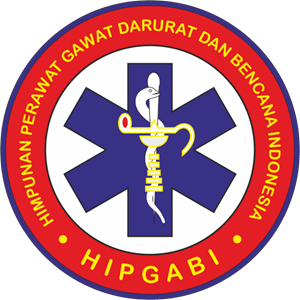Tingkat Kecemasan dan Stabilitas Tanda Vital pada Pasien Pra Operasi Paska Sensory Motor Body Therapy
Downloads
Introduction:.Anxiety arises from physical, psychological and other pressure of threats. Anxiety may occure in patients who are planned for surgery, from mild untill severe anxiety, that also involving changes in vital signs. One of the techniques used to reduce the anxiety is sensory motor body therapy. Nevertheless, this therapy has not been proven yet reduce an anxiety of elective surgery patients. Therefore, this study was aimed to investigate the effect of sensory motor body therapy on anxiety level and vital sign of pra operation patients.
Method:The research was`used a quasy experiment (pre and post with control group). Sample on this study were 26 respondents which divided into 2 groups, the control and treatment group. The independent variable was sensory motor body therapy whereas the dependent variables were blood pressure, heart rate and respiration rate. The data were collected using Zung self-rating anxiety scale (SAS/ SRAS) and vital signs observation and were then tested using Wilcoxon Signed Rank Test, Mann Whitney Test, Paired t-Test and Independent t-Test with significant level of p<0.05.
Result:Sensory motor body therapy has been an effect in anxiety level (p=0.001), systole pressure (p=0.020) and respiration rate (p=0.001). But, it has not been an effect in diastole pressure (p=0.316) and heart rate (p=0.481) because of most patients were in the normal boundary.
Discussion:Based on the reseach results, we can conclude that sensory motor body therapy in pra operation have a significant role in controling patients anxiety level, systole pressure and respiration rate. For further study, next researcher can improve a new method of sensory motor body therapy on anxiety in pra operation patient.
Smeltzer, SC & Bare, BC , (2003). Brunner and Suddarth's Textbook of Medical-Surgical Nursing, (10th ed.). Philadelphia : Lippincott Williams & Wilkins
Suparmi, Y, (2008). Panduan praktek keperawatan kebutuhan dasar manusia. Yogyakarta : PT. Citra Aji Pratama
1. The journal allows the author to hold the copyright of the article without restrictions.
2. The journal allows the author(s) to retain publishing rights without restrictions.
3. The legal formal aspect of journal publication accessibility refers to Creative Commons Attribution (CC BY).

















